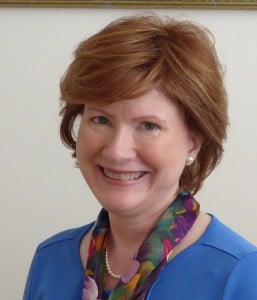 Sometimes when we are at a low point, or we have experienced unfeeling, unthinking hurt from someone who doesn’t understand the pain or chronic illness we struggle with, we might wish that someone could speak up for us, defend us, or present our “cause” to the world and thus make the way smoother for future encounters.
Sometimes when we are at a low point, or we have experienced unfeeling, unthinking hurt from someone who doesn’t understand the pain or chronic illness we struggle with, we might wish that someone could speak up for us, defend us, or present our “cause” to the world and thus make the way smoother for future encounters.
It can be helpful for someone “high profile” to take up one or another cause, whether it’s a specific disease or a way to prevent ill health or a particular health condition. Such “stars” have what I call “attention clout,” that is they turn eyes and ears to them and can reach their fans with a potentially helpful message.
But another way of looking at the spokesperson issue is to turn inward, to ourselves. After all, we who live with these particular health challenges know better than those who don’t just what it is that makes life more problematic and complex. Yes, inside each of us is our own spokesperson!
I’m not suggesting that we carry around a portable soapbox and declare our condition to the world. But I do think that each day God presents us with opportunities to give others a glimpse of our lives and heart, and help them make better choices when it comes to navigating the world. For example, we can express gratitude to someone who holds a door open for us, or pauses the elevator just long enough for us to slip inside. We can smile, even if we don’t feel like it, and share a bit of light, showing others that even with pain, we embrace the precious lives God has given to us.
When we’re challenged by others, we can take a deep breath (or maybe two, if we need it), say a prayer for wisdom, and engage the person in a bit of conversation. It might not take much coaxing to turn what seems to be a heart of stone to one more receptive to understanding.
In my book Peace in the Storm: Meditations on Chronic Pain & Illness, I talk about one such incident. I was in more pain than usual, but had to retrieve my computer from the repair shop. When I asked the shop worker to help me with the CPU, to carry it to my car that was parked in a handicapped space, the worker refused and said, instead, that I didn’t “belong” in that space. I wasn’t in a wheelchair, and so I should not be parking in a space exclusively for wheelchair-bound people.
Oh, my!
I asked for the manager, who was much more understanding. And as he carried my CPU to the car, I suggested he might educate his employees on the broader spectrum of disabilities. So many of us do not “look” disabled, but looks don’t tell the whole picture. In fact, I and many others I know take extra pains to “look” much better than we’re actually feeling inside!
The kind(er) manager said he would talk to his workers. I hope others in the future were met with more across-the-board compassion!
This is but one story, but it illustrates how much we can do for ourselves and others in like-situations. And as we embrace the role of Spokesperson, we can also feel that we are useful witnesses – part of God’s wonderful plan! Not hopeless, but hope-filled!
Peace,
Maureen
